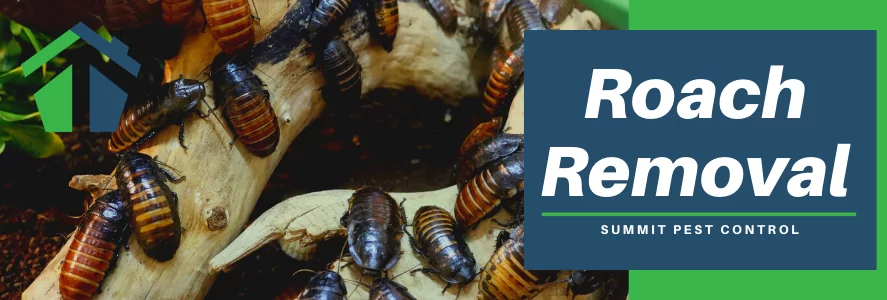Exploring Numerous Parasite Control Approaches to Attain Long-Term Success in Handling and Preventing Infestations in Residential Areas
Effective insect control in household areas demands a multifaceted method that stabilizes immediate results with long-term sustainability. What might these developments require, and exactly how can they transform our understanding of bug control?
Understanding Parasite Control Techniques
Although pests have existed alongside people for centuries, the techniques used to regulate them have actually evolved considerably gradually. Understanding these methods is vital for effectively handling and avoiding problems in suburbs. Bug control strategies can be broadly categorized into three main techniques: social, mechanical, and chemical.
Cultural methods focus on changing the environment to lower pest destination and breeding. Mechanical control entails physical obstacles and catches to manage insects straight, such as screens, vacuum cleaners, and sticky traps.
Chemical control stays among the most extensively used approaches, including the application of chemicals to get rid of parasites. While effective, this approach requires mindful factor to consider of safety and security, potential resistance advancement, and ecological effect. Integrated Insect Management (IPM) integrates these techniques to create an alternative method, promoting long-term bug avoidance and very little injury to beneficial microorganisms. By understanding these different parasite control approaches, house owners can make informed decisions that advertise reliable monitoring and preservation of their home.
Eco-Friendly Parasite Control Solutions
Exactly how can home owners efficiently handle bug troubles while decreasing their environmental effect? Environment-friendly bug control options use a lasting option to standard techniques, focusing on the wellness of both homeowners and the bordering ecological community. These remedies often make use of all-natural active ingredients and techniques that disrupt pest behavior without presenting harmful chemicals into the setting.
One reliable technique is the usage of helpful pests, such as ladybugs and lacewings, which take advantage of usual insects like aphids and termites. Additionally, diatomaceous earth, a natural powder made from fossilized algae, can be sprayed in areas where parasites prevail, serving as a desiccant that damages insects while continuing to be secure for human beings and pets.
Furthermore, carrying out preventative measures is critical. roach control near me. Homeowners can guarantee correct hygiene by sealing entry factors, keeping tidy living rooms, and handling waste effectively. Growing pest-repellent herbs, such as mint and basil, can also prevent unwanted visitors
Inevitably, environment-friendly parasite control remedies encourage home owners to deal with infestations properly, cultivating a safer living atmosphere while advertising ecological balance. By welcoming these techniques, individuals can add to a healthier world while properly managing pest-related problems.
Chemical Bug Control Options
While environmentally friendly remedies are progressively preferred, there are situations where chemical bug control options may be needed for effective management of extreme problems. Chemical controls, including insecticides, fungicides, and herbicides, are frequently utilized to rapidly lower pest populaces and alleviate damages to homes and yards.
These items can be categorized into 2 major classifications: synthetic chemicals and all-natural pesticides. Artificial chemicals, such as pyrethroids and neonicotinoids, are crafted to target particular bugs, offering quick knockdown impacts. Conversely, all-natural pesticides, derived from plant or mineral resources, may supply a much more eco-friendly option while still delivering efficient results.
Before employing chemical pest control, it is vital to conduct an extensive analysis of the invasion and recognize the certain pest entailed. visit their website This ensures that the chosen chemical is both reliable and suitable. In addition, homeowners have to adhere to safety guidelines, including proper application strategies and personal protective tools, to reduce wellness risks and environmental influence.
Integrated Pest Administration Techniques

Biological control entails the usage of all-natural predators or parasites to manage parasite populations. Physical controls, like catches or barriers, can avoid bugs from entering homes or harmful plants.
Monitoring and evaluation are crucial components of IPM, permitting prompt treatments based on pest populace thresholds. By focusing on safety nets and utilizing a combination of tactics, IPM not only addresses existing problems yet also promotes long-term bug management services that secure both human wellness and the atmosphere. This extensive approach is necessary for lasting parasite control in houses.
Arising Technologies in Insect Control
The development of arising technologies in parasite control is changing the way we take care of pest populaces, providing cutting-edge remedies that boost performance and performance. Breakthroughs in accuracy agriculture, as an example, make use of data analytics and sensor technologies to monitor pest task and environmental Going Here conditions, allowing for targeted treatments that decrease chemical use.
Additionally, drones outfitted with imaging modern technology are being used to evaluate big areas for problems, supplying real-time data that help in prompt decision-making. Moreover, biotechnology is playing a critical role, with the growth of genetically customized organisms (GMOs) made to minimize pest populaces while maintaining advantageous species.

Last but not least, smart catches and keeping track of tools geared up with IoT abilities make it possible for property owners and bug control experts to get immediate informs concerning insect task, promoting prompt action. Collectively, these emerging technologies not just enhance insect management end results yet likewise contribute to environmental sustainability by lowering dependence on conventional chemical treatments.

Verdict
In conclusion, efficient pest control requires a complex approach that integrates social, mechanical, and chemical approaches. Stressing eco-friendly options and Integrated Parasite Administration can bring about lasting practices that not only reduce invasions yet additionally enhance the ecological balance within houses. By accepting cutting-edge modern technologies and adopting preventive actions, property owners can promote much healthier atmospheres while lessening dependence on dangerous chemicals. The assimilation of these approaches is crucial for achieving long-term Visit Website success in bug monitoring.